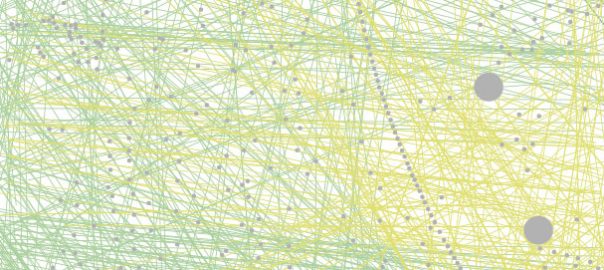…through television and telephony we shall see and hear one another as perfectly as though we were face to face, despite intervening distances of thousands of miles; and the instruments through which we shall be able to do his will be amazingly simple compared with our present telephone. A man will be able to carry one in his vest pocket. Nikola Tesla (1912)
The possibilities of technology are seemingly endless. I would not be writing to you in cyberspace right now if this were not the case, and as Tesla rightly predicted you may be reading it from a device small enough to fit in your pocket. Yet despite the ubiquity of mobile wireless technologies there remain potential applications that have not yet been discovered or used yet.
We tend to take technologies for granted because they are intertwined with our regular lives, but how we interact with them is still far from straightforward.
Sometimes there are problems that are simply too unique, too individual that current off the shelf technologies cannot address them. How do you build devices to solve human problems if they’re not focused on the values and needs of people?
And how do you take available communications technologies and use them to solve real-world problems?
There’s still time to get human-computer interaction right. The ethos behind human computer interaction is not merely to get computing to work better for people, but to find ways for technology to improve and transform their lives, and create agency.
Work in human-computer interaction takes an alternative approach to what is generally assumed – instead of starting with the device, start with the user, understand their own needs and values, and work with them to co-design the technology to meet them.
One of the groups at the forefront of work in this area is Open Lab in the School of Computing based at the Urban Sciences Building at Newcastle Helix. Open Lab started in 2007, and has grown to over 100 researchers, many of whom have backgrounds in areas other than computing such as healthcare, community arts, urban planning, education and psychology.
Much of Open Lab’s work falls under the banner of Digital Civics: designing digital technologies that help individuals, local communities, and third sector organisations have a stronger voice in public services, and local democracy. Its projects are dedicated to delivering public services in a more resilient way. It works with citizens in the UK and around the world to do this
In the next edition of #awriterinthelab podcast, Dr Andy Garbett from Open Lab in the human-computer interaction (HCI) research group at Newcastle University – discusses how HCI research can engage local communities through technological design. He talks about his work on Feedfinder – an app for breastfeeding mothers, App Movement – a community app commissioning platform and ThinkActive – a system to help children keep fit.
Image: BigData Self-Portrait by Martyn Dade-Robertson, School of Architecture, Planning and Landscape, Newcastle University
